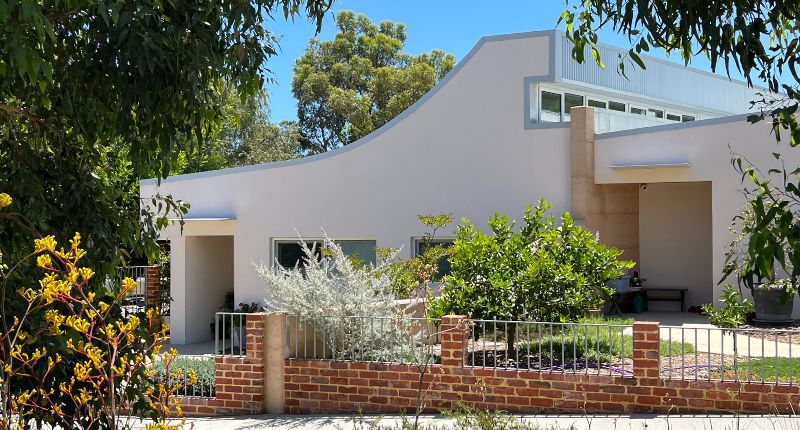
- Smaller homes can shrink costs in many ways, from operating costs, to decorations, and more.
- More affordable homes mean lower borrowing costs and less debt.
- Going small and affordable doesn't mean skimping on luxuries and better add-ons.
A series of affordable housing thoughts and ideas by Perth’s leading architects continues with this piece by Michelle Blakeley.
One simple solution to Australia’s housing affordability crisis is resetting expectations of how large a home should be.
The reality is that many people could afford to buy a home if they were realistic about the amount of living space they need.
It is worth thinking about whether you really need that extra bedroom, and how you can share spaces for different activities.
Using spaces more efficiently can quickly save tens of thousands of dollars on the cost of a home.
Choosing a smaller home has a host of benefits, from freeing up your time, costing you less to maintain and run, costing less to build, less to borrow, and more.
The nine benefits of smaller homes
- More free time
- Lower running costs
- Less debt
- Better add-ons
- More luxuries
- Lower environmental impact
- Better family bonding
- Easier to decorate
- A better investment.
How does a smaller home give you more free time?
More affordable, smaller homes give you back your time because basic tasks such as cleaning and maintenance are quicker, and less resource-intensive than in larger homes.
All things being equal, a smaller home requires less time, energy, and effort to keep it looking great.
Why do smaller homes cost less to run?
Not only is it easier and faster to heat or cool a smaller space, alongside the lower cost of heating and cooling that smaller space, ongoing costs such as insurance, electricity, and maintenance are also lower.
How can a smaller home lead to less debt?
Living small means less debt, less financial risk, and less financial stress.
Many people borrow to their maximum ability to purchase a home and that limits the money left for all the other living expenses.
Making ends meet can be a constant juggle.

Why do smaller homes have better add-ons?
A smaller mortgage lets you direct money to add-ons when money is available, such as adding solar panels, which in turn saves on the ongoing running costs of your home, as well as better floor coverings, window treatments, landscaping, outdoor living spaces, swimming pool and spa.
Smaller homes don’t skimp on the luxuries
Affordable does not mean sacrificing luxuries. A big home does not provide luxuries.
Many people move into a big home that is bare of any luxuries because the cost of the house does not leave them with any money for the items that transform a house into a home.
How are smaller homes better for the environment?
Smaller homes have a smaller environmental impact. They require fewer resources to build and maintain.
Can smaller homes still be great for the family?
Smaller homes encourage family bonding. A smaller home results in more social interaction among the members of the family.
While this may be the reason that some people purchase bigger homes, all that extra space can create isolation and separation.

Smaller means decorating is more cost-effective
Decorating a smaller home will cost less because you need less. Less carpet, less polished concrete, less furniture, less window treatments, less light fittings, and less painting.

Is it a good investment?
A smaller home should be seen as a good investment because it is affordable to a larger percentage of the population.
Does this only apply to houses?
These benefits can be had for a single house, a townhouse, a duplex, a home unit, apartment, all of which are lifestyle choices but are also money-saving choices.
They also give you more choice of location, which can save on travel time to and from work and better access to services and amenities.
Bigger is not better. It is simply more expensive.
~~
Disclaimer: This article contains general information and should at no time be considered advice to the reader. The reader should always verify their situation with the relevant certified professionals before taking any further steps. See our Terms of Use.







